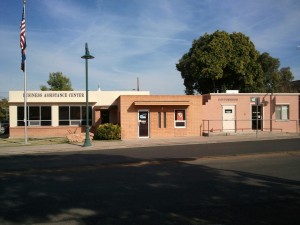By Sean Ahern, Economic Development Manager
This month’s focus for the city of Flagstaff’s Economic Vitality Division is economic development. The economic development program is housed in Community Investment and staff is located at City Hall. Community Investment along with the Flagstaff Pulliam Airport and Convention and Visitors Bureau make up the “business outreach side” of city hall, and are all economic drivers for our community. Economic development staff’s primary focus is to retain and strengthen existing businesses, while helping to grow and attract new, innovative businesses for our community’s economic health and sustainability.
On a national level, the competition for jobs has never been more competitive. Many traditional regional employment opportunities have declined in the past decade due to outsourcing, technology and changing consumer habits. Historically, California has been the place for innovation and business growth California’s innovative businesses well trained and educated workforce, progressive college system, and access to global transportation hubs have created tremendous wealth, jobs and successful businesses throughout the Golden State. Fast forward to today when the business climate in California has become increasingly unfriendly with increased taxes, aging infrastructure and stiff regulation making many business owners consider relocating to a more business friendly state. As taxes, regulation and costs have increased in California, so has the competition from surrounding western states to attract California businesses to their respective states.
Texas, Utah, Nevada and Arizona compete daily on attracting California businesses to their state. Additionally, a number of multi-national and east coast companies wish to locate their expansion operations in affordable states neighboring California because of the high costs associated with California. Businesses with these needs play a very important role in Arizona’s attraction efforts because of our proximity to California, talented workforce, available land, access to markets and overall business friendly environment.
In Flagstaff, city economic development staff work closely with the Arizona Commerce Authority and our regional partner the Economic Collaborative of Northern Arizona (ECoNA), to market and attract businesses to the greater Flagstaff area. Flagstaff has always had an identity problem in clearly articulating perception versus reality with business owners and investors outside of Northern Arizona. Flagstaff is often thought of as a sleepy, mountain town with little in the way of commerce and innovation. The city and its partners are working hard to change that image while supporting responsible growth; through a new imaging campaign, using market analysis tools to statistically show the power of our market, offering site tours to business owners interested in learning more about Flagstaff’s business climate and increasing connectivity with key stakeholders across the region.
Recently, the city worked with ECoNA’s business attraction team to attract and eventually locate IML to Flagstaff. IML is a multi-national plastic manufacturer who was interested in expanding to the west coast. The city of Flagstaff competed against 10 cities for IML’s business; ultimately the city of Flagstaff prevailed as IML’s choice because of our proximity to California, workforce, quality of life and professional response to IML’s needs during the selection process. Currently the city is working on a number of potential locates that would provide high wage low impact jobs to the community, many of these coming from California.
Flagstaff is the economic engine of northern Arizona, and attracting new businesses is only part of the economic cycle. Retaining, expanding and supporting the needs of existing businesses are extremely important in protecting our local economy and financial security. Our neighboring states are not only looking to California for new businesses, they are also looking at Arizona companies. Recently Flagstaff lost Southwest Windpower, and their high paying engineering and manufacturing jobs to Colorado. Protecting and growing established industries and providing assistance to newly established companies is where the economic development staff spends a great deal of time.
Staff provides assistance to local businesses through a number of channels. Recently a “business assistance kiosk” was developed at City Hall that provides: one-on-one needs analysis, planning and design review, incentive and grant overview, market and demographic analysis, workforce and business advocacy.
A great example of the advocacy and assistance that is provided to the community is the recent receipt of a $100,000 rural grant award from the Arizona Commerce Authority for the continued expansion of Joy Cone, a low impact high wage employer. Joy Cone came to the city with a need to expand their operations by decommissioning their aging incinerator and building an additional batter room that would require five new employees. Joy Cone is leveraging the $100,000 rural grant from the Arizona Commerce Authority with $900,000 of their own capital for a $1 million dollar expansion project. This is the third year in a row that the city of Flagstaff has successfully partnered, assisted and managed the rural grant program with T-Gen North, Machine Solutions and Joy Cone.
As business advocates the city’s economic development team help a number of businesses with everything from custom one-on-one needs analysis assistance to helping established businesses navigate city hall. Visit us online at cityofinnovation.com to learn more about our services for the entire business community.

